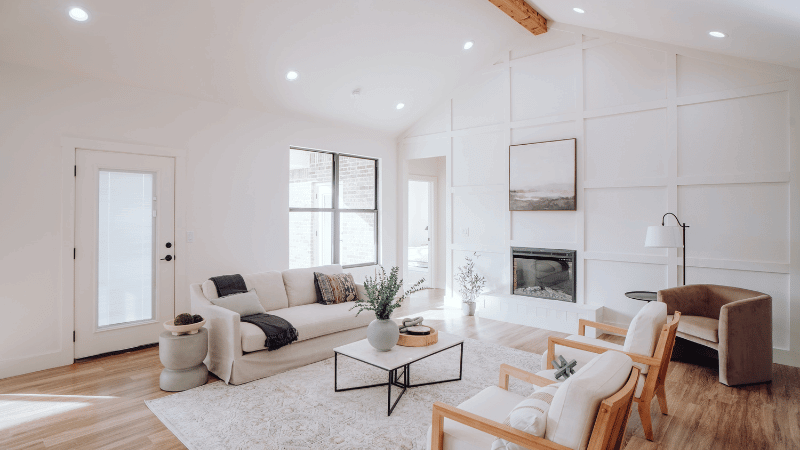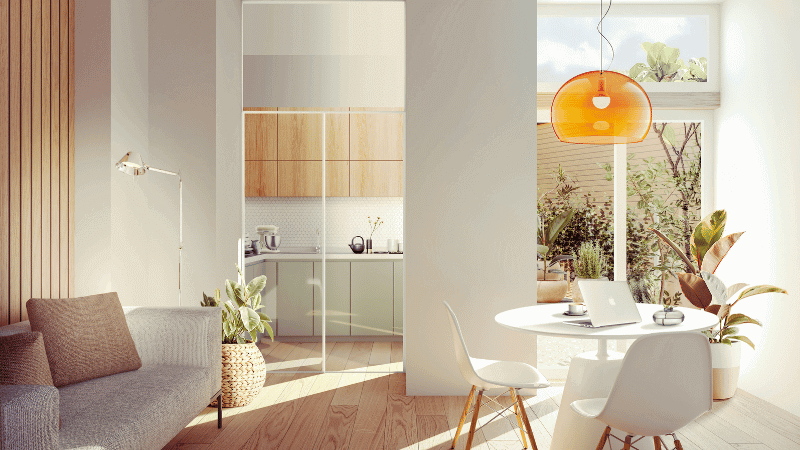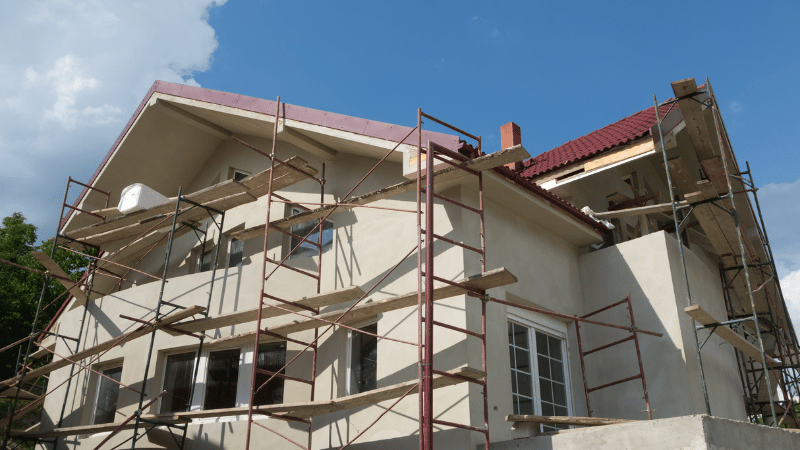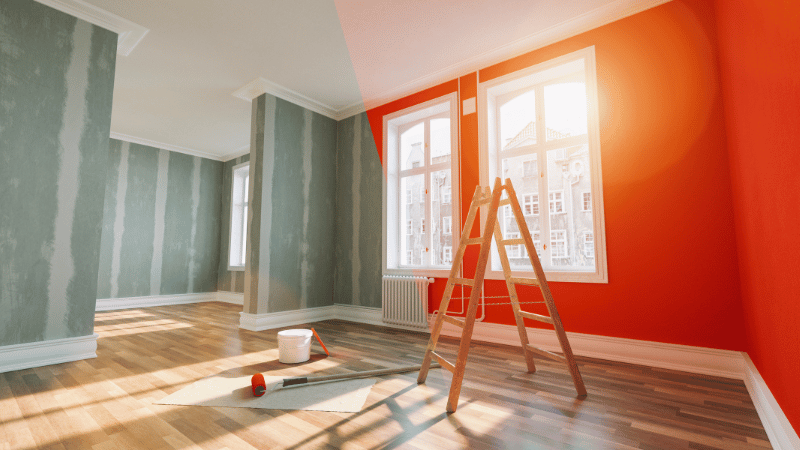Categories
How to Secure a Mortgage for a Property Without a Kitchen

If you’re considering getting a mortgage for a property without a kitchen, it’s important to know that this does present some challenges. However, it is possible with the right approach.
There are several reasons you may want to buy a property without a kitchen, for instance, if you plan on doing a substantial renovation to it.
In circumstances where you’re buying a property that needs considerable work done, it’s important that the lender you approach can also see the project’s potential.
Get Started Here
In this guide, we'll delve into the intricacies of securing a mortgage for a property deemed unmortgageable due to its lack of a kitchen. We can provide valuable tips and insights to help you navigate this unique situation.

Contents:
Can You Get a Mortgage on a Property Without a Kitchen?
What Does Unmortgageable Mean?
Why Are Some Properties Unmortgageable?
What to Look for in an Unmortgageable Property
Alternative Funding for a Property Without a Kitchen
Tips on Securing a Mortgage on a Property with No Kitchen
Can You Get a Mortgage on a Property Without a Kitchen?
Yes, you can.
But it can be difficult, and it's best to speak to a specialist broker to help you find the right lender that will accept your application.
Properties without kitchens may have lower resale value, making them a riskier investment for lenders. Lenders want to ensure that the property can maintain or increase in value, as this affects their ability to recoup their investment if the borrower defaults.
Kitchens are considered essential amenities in a home. They are crucial for daily living and food preparation. Lenders typically require that a property has a functional kitchen to ensure that the person living in the house can meet their basic needs.
Kitchens also are associated with safety and hygiene. A lack of a kitchen can raise concerns about the habitability and safety of the property, which can deter lenders from providing a mortgage.
Properties without a kitchen may be considered unmortgageable for several reasons, although it's essential to note that the specific requirements for mortgage eligibility can vary depending on the lender and the location.
Additionally, kitchens – especially if you invest a new kitchen – will add value to the property.
See similar: Sell and Upsize Your Home or Renovate - Your Finance Options
What Does Unmortgageable Mean?
"Unmortgageable" refers to a property that cannot be easily or readily financed with a traditional mortgage. It means that lenders are hesitant or unwilling to provide a mortgage loan for the purchase of that specific property due to various factors that make it a high-risk investment or not compliant with lending standards.
Unmortgageable properties often require significant repairs, have legal issues, or lack essential features, making them less appealing to lenders. As a result, buyers may face challenges in securing financing to purchase such properties.
It's essential to address the underlying issues that render a property unmortgageable if you intend to finance its purchase through a mortgage loan.
Why Are Some Properties Unmortgageable?
The absence of a kitchen is one factor that can deem a property unmortgageable, but there are other things your property needs to be eligible for a mortgage.
Some common requirements for a property to be considered habitable are:
Watertight
The property must be watertight, with a roof in good repair. Water intrusion can cause significant damage to a property's structural components over time.
If a property is not watertight, it may suffer from rot, mould, and deterioration of materials like wood and drywall. This can compromise the structural integrity of the property.
Basic Kitchen
It should have a basic kitchen, although this condition may vary among lenders.
Functional Indoor Bathroom
A functional indoor bathroom with an inside toilet is typically required.
Many local building regulations require that residential properties have at least one bathroom. These are put in place to ensure that homes meet minimum safety and sanitation standards.
Properties that do not comply with local building codes may not be eligible for a mortgage.
A property without a bathroom will generally be less desirable to potential buyers and may have a lower resale value. This can pose a higher risk to the lender.
Additional Considerations
Most mortgage lenders also expect properties to have electricity and central heating, be secure, and be free of refuse and pests.

What to Look for in an Unmortgageable Property
When assessing a property's mortgageability, it’s advisable to keep an eye out for potential issues.
Be aware of any signs of structural damage, such as penetrating damp, cracks in brickwork, leaning chimney stacks, or sagging floors or ceilings. These issues could lead to extensive repairs.
It’s important to inspect the condition of bathroom fittings and surfaces. Damaged or non-functional fixtures can affect the property's overall mortgageability.
Another point of issue can be rotten or broken windows – these can be a red flag for lenders. Moreover, properties with signs of pests may face difficulties in securing a mortgage from a mortgage lender.
A property with no kitchen or bathroom will typically present a significant hurdle. It’s important to make your plans for the property clear in your application and approach a lender that can accommodate non-standard property purchases.
An experienced mortgage broker can make this process easier. A specialist mortgage broker can connect you with lenders who have the resources to facilitate more complex applications and get you access to better rates.
Alternative Funding for a Property without a Kitchen
If you have your eye on a property without a kitchen but you’re struggling to secure a traditional mortgage, there are alternative options you could consider.
Mortgages with Renovation Loans
Advantages:
-
Allows you to finance both property purchase and renovation costs, including adding a kitchen.
-
Simplifies the financing process by rolling renovation costs into a single mortgage.
-
May provide more flexible terms than traditional mortgages.
Considerations:
-
Typically require detailed renovation plans and budget estimates.
-
Interest rates on renovation loans may be slightly higher than standard mortgages.
-
Eligibility criteria can be stricter due to the added risk of renovation.
Here’s an Example - Imagine you find a property in a desirable location but without a kitchen. With a renovation loan, you can purchase the property and fund the kitchen installation as part of the renovation project, allowing you freedom to improve the property where you see fit.
Bridging Loan as a Short-term Solution
Bridging loans are a form of short-term finance. Bridging finance typically has a simpler application process than mortgages, making them suitable for quick property purchases.
Advantages:
-
Can cover the costs of making the property habitable in the short term.
-
Can usually be secured more quickly than a mortgage.
-
Flexibility to repay when you secure a long-term mortgage or sell the property.
Considerations:
-
Typically come with higher interest rates than traditional mortgages.
-
Short repayment timelines can be challenging if there are delays in securing long-term financing.
-
Bridging loans may involve higher upfront fees.
Here’s an Example - You come across a property at a competitive price but without a kitchen.
A bridging loan allows you to purchase the property quickly and make it habitable by installing a temporary kitchen.
Once it's mortgageable, you can secure a traditional mortgage and pay back the loan.

UK Government-backed Renovation Loan Programs
Advantages:
-
Lower interest rates and favourable terms compared to private lenders.
-
May have less stringent credit requirements.
-
Government support can provide a safety net and confidence to lenders.
Considerations:
-
Eligibility criteria and availability may vary by region.
-
There may be restrictions on the types of renovations covered.
-
The application process may require more time and paperwork.
Governments offer renovation loan programs or levelling up home building development finance to encourage property revitalisation. However, this particular fund is only suitable for large-scale development with multiple unmortgageable properties.
But there are other programs available, as well as lenders that can help you finance both your property purchase and kitchen installation. These may offer more favourable terms than private lenders.
Exploring mortgage options that can accommodate unique properties can allow you to tailor your financing strategy to the specific needs of your kitchen-less property.
Remember to consult with lenders and professionals who are well-versed in these options to determine the best fit for your situation.
At Clifton Private Finance, we can help you weigh up your options and choose the lender best suited to your needs.
Regulated Mortgages for a Property Without a Kitchen
If you're purchasing a property without a kitchen to live in, or if the property you're using as collateral is your primary residence, the mortgage will typically fall under regulatory guidelines set by the Financial Conduct Authority (FCA). This regulation is in place to safeguard your home.
-
Loan Duration - A regulated mortgage for a kitchen-less property can generally run for a maximum of 12 months. However, exceptions may be considered if you need a limited extension to complete the necessary refinancing.
-
Interest Payments - In regulated mortgages, the interest is typically "rolled up" into the total loan amount. This means that instead of paying the interest monthly, it's added to the overall loan balance. Keep in mind that this approach may reduce the maximum total amount you can borrow.
Unregulated Mortgage for an Investment Property Without a Kitchen
If you're purchasing the property as an investment, and it's not secured against your primary residence or that of a family member, the mortgage may be unregulated.
-
Loan Duration -Unregulated mortgages for kitchen-less properties may have more flexibility in terms of duration. They can often be extended for 18 months or even longer, depending on your needs and circumstances.
-
Interest Payments -With unregulated mortgages, you typically have the option to "service" the loan by making monthly interest payments. This allows you to manage the interest separately from the principal loan amount.
Tips on Securing a Mortgage for Property with No Kitchen
Securing a mortgage for a property without a kitchen can require a certain level of strategy.
We’ve curated some tips to help guide you:
Consult Multiple Lenders
Approach multiple lenders and discuss your situation. Some lenders may be more flexible and willing to work with you to find a suitable solution.
Document Your Renovation Plans
Provide detailed renovation plans, including the addition of a kitchen, to demonstrate your commitment to making the property habitable. A well-laid plan and evidence to back it up will persuade lenders to approve a mortgage.
Alternative Financing
While focusing on mortgages, you can also take alternative financing options like bridging loans into account. These could serve as a temporary solution while you work on making the property mortgageable.
Seek Professional Advice
Consulting a mortgage broker with experience in dealing with unique property situations can help you get the best results.
Here, at Clifton Private Finance, we can guide you through your application and connect you with the right lender.
Our mortgage brokers can help you find tailored financial solutions and get the best deal on the market for your circumstances.

Need Help Getting a Mortgage?
Securing a mortgage for a property without a kitchen may seem challenging, but it's not impossible.
By understanding the requirements of traditional lenders, carefully assessing the property's condition, and exploring alternative financing options, you can take steps toward making your dream home or investment property a reality.
At Clifton Private Finance, we specialise in mortgage solutions for unique property situations.
Give our team a call at 0117 959 5094 or book an appointment below, and we'll assist you in finding the right financing solution for your needs.









